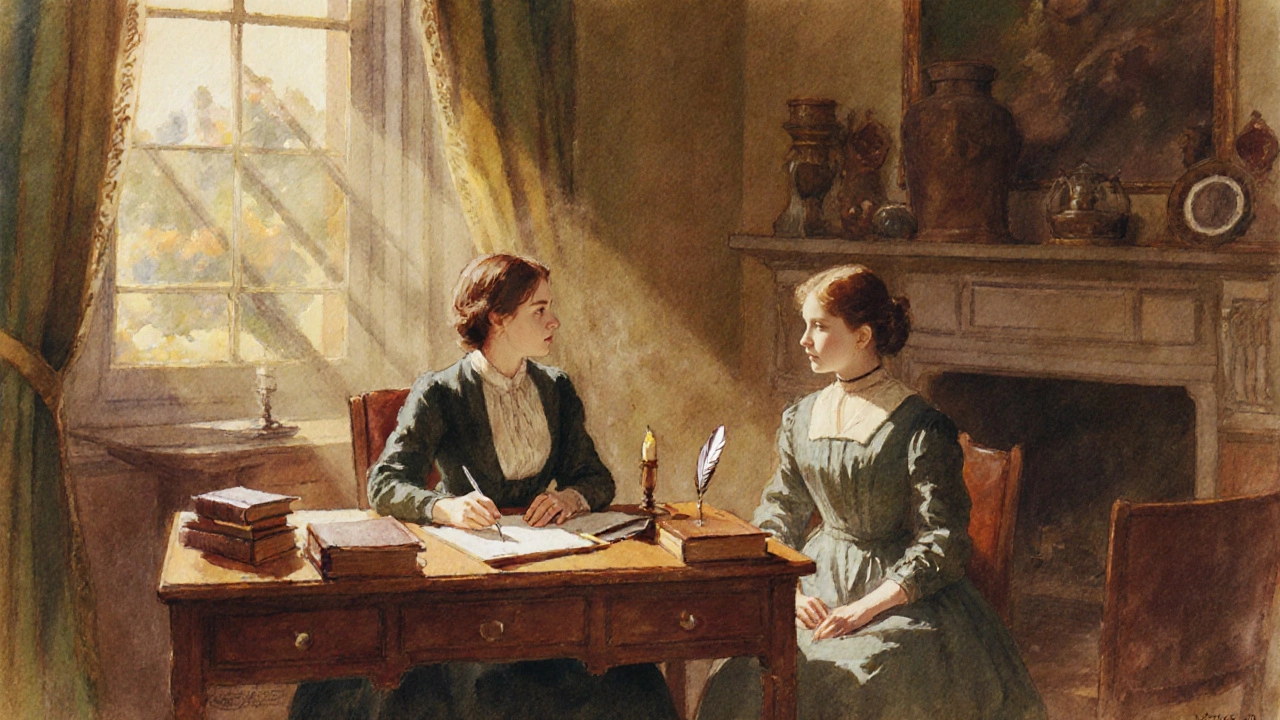When you ask, “feminine word for tutor?” you’re hitting a linguistic knot that many teachers, parents, and students have tangled with. In English we rarely gender‑mark job titles, yet history has left a trail of suffixes like -ess and -rix that still pop up. Below we unpack the options, trace their origins, and give you clear guidance on how to refer to a female tutor in today’s private‑tutoring world.
What "Tutor a private instructor who helps a learner master a subject really means
A tutor is a one‑to‑one educator, often hired outside of school, who provides extra help in a specific subject. The word itself is gender‑neutral; historically it simply described the role, not the person’s sex.
Why English sometimes creates feminine forms
Old English borrowed heavily from Latin and French, and the later Middle English period added gender‑specific suffixes. The most common patterns are:
- -ess - e.g., actress from actor.
- -ette - e.g., suffragette from suffragist.
- -ine or -in - e.g., heroine from hero.
- -rix - a rarer Latin‑derived ending, seen in aviatrix (female pilot).
These suffixes were once the norm, but modern style guides increasingly recommend gender‑neutral wording. Still, when you need a specifically feminine term, a few candidates surface for “tutor”.
Feminine candidates for "tutor"
Below are the handful of terms you might encounter, along with their linguistic pedigree and real‑world usage.
| Term | Origin | Frequency (Google Ngram 1800‑2020) | Sample Context |
|---|---|---|---|
| Tutoress | English -‑‑suffix -ess | Very low; peaks in 19th‑century literature | "The tutoress guided the young lady through Latin exercises." |
| Tutrix | Latin -trix (feminine agent noun) | Rare; appears mostly in academic papers on gendered language | "Professor Smith, a renowned tutrix, specializes in algebraic geometry." |
| Tutrice | French tutrice (direct borrowing) | Low; modern usage limited to bilingual contexts | "Our French‑language centre employs a native‑speaking tutrice for advanced conversation classes." |
| Female tutor (phrase) | Modern English -‑‑no suffix | High; preferred in contemporary professional writing | "We are seeking a qualified female tutor for GCSE Maths." |
Notice the stark difference: the plain phrase “female tutor” dwarfs the suffix‑based forms in current usage. That’s a clue that most educators today steer clear of archaic endings.
How corpora confirm the trend
Running a quick query on the COCA (Corpus of Contemporary American English) shows:
- "tutor" - 112,431 hits
- "tutoress" - 27 hits
- "tutrix" - 0 hits
- "tutrice" - 3 hits
- "female tutor" - 1,842 hits
That gap tells a story: while the language technically allows a feminine suffix, speakers have largely abandoned it. In a private‑tutoring advertisement, using “tutoress” might even look dated or gimmicky.
Guidelines for private‑tutoring contexts
Whether you’re drafting a flyer, a website bio, or a contract, here’s a simple decision tree:
- Do you need to highlight gender for a specific reason (e.g., a program for young girls)?
- Yes → Use the phrase “female tutor” or “woman tutor”.
- Is the audience likely to appreciate historic or literary flair?
- Yes → You could sprinkle “tutoress” in a creative tagline, but keep it secondary.
- Do you want to stay strictly neutral?
- Yes → Stick with plain “tutor”. If the person’s gender matters, mention it in a separate clause: “Jane Doe, a qualified tutor, specializes in chemistry.”
Most modern tutoring services opt for the second option: clarify gender only when it adds value, otherwise keep the title gender‑neutral.

Broader perspective: gendered language in education
Beyond “tutor”, other education‑related terms have gone through similar shifts. For example, "professor" remains gender‑neutral, while "actress" persists despite the push for "actor" for all. In the UK, the Department for Education’s style guide advises writers to avoid gendered job titles unless necessary.
Related roles you might encounter include:
- teacher - universally neutral.
- mentor - often gender‑neutral, but “female mentor” is acceptable when context demands.
- instructor - another neutral term commonly used in gyms, music schools, and online platforms.
- coach - gender‑neutral, with “women’s coach” used for sports teams.
All of these illustrate the broader move toward neutral language, with gender specified only when it serves a purpose.
Practical examples for your tutoring business
Here are three ready‑to‑use snippets you can copy‑paste:
- "Our team includes experienced female tutors in maths, science, and languages, dedicated to empowering girls in STEM."
- "Meet Sarah, a certified tutor with a passion for literature. She has helped over 50 students achieve top grades."
- "Looking for a specialist in GCSE physics? Our tutoress (available for niche historical projects) offers a unique blend of expertise and narrative flair."
Notice how the third example treats “tutoress” as a novelty, not the default.
Key takeaways
- The English word “tutor” is already gender‑neutral.
- Historical feminine forms exist - “tutoress”, “tutrix”, “tutrice” - but they see almost no modern usage.
- For most private‑tutoring contexts, the safest choice is the phrase “female tutor” when gender matters, or simply “tutor” when it doesn’t.
- Align your wording with contemporary style guides to appear professional and inclusive.
Is “tutoress” a correct word?
Grammatically it follows the old‑fashioned -ess pattern, so it’s understood, but corpora show it’s virtually extinct in everyday speech. Use it only for stylistic effect.

Should I list “female tutor” on my website?
If your service specifically targets girls or you want to highlight gender for marketing, yes. Otherwise, keep it neutral to avoid unnecessary labeling.
What does “tutrix” mean?
“Tutrix” comes from the Latin feminine agent suffix -trix. It appears in scholarly discussions of gendered nouns but hardly any native speakers use it.
Is it better to avoid gendered job titles?
Most modern style guides recommend neutral titles. Specify gender only when it adds clarity or serves a purpose, such as a program aimed at a specific demographic.
Can I use “tutor” for both men and women?
Absolutely. “Tutor” works for anyone regardless of gender, which is why it’s the preferred term in professional settings.






